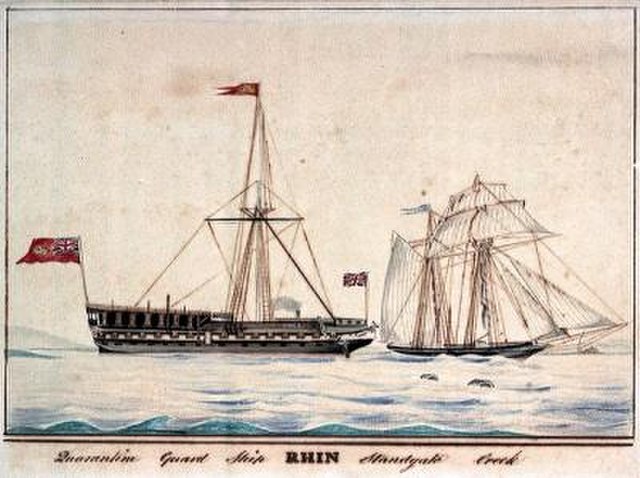A lockdown is a restriction policy for people, community or a country to stay where they are, usually due to specific risks that could possibly harm the people if they move and interact freely.
Barricaded streets during the lockdown due to COVID-19 outbreak in Bhopal, Madhya Pradesh, India
Police conversing with people during a lockdown in Benidorm, Spain
A quarantine is a restriction on the movement of people, animals and goods which is intended to prevent the spread of disease or pests. It is often used in connection to disease and illness, preventing the movement of those who may have been exposed to a communicable disease, yet do not have a confirmed medical diagnosis. It is distinct from medical isolation, in which those confirmed to be infected with a communicable disease are isolated from the healthy population. Quarantine considerations are often one aspect of border control.
US President Richard Nixon greeting the Apollo 11 astronauts in NASA's mobile quarantine facility
The quarantine ship Rhin, at large in Sheerness. Source: National Maritime Museum of Greenwich, London
Isolating a village in Romania whose inhabitants believe that doctors poison those suspected of cholera (1911)
The quarantine hospital building (lazaretto) at the historic Columbia River Quarantine Station near Knappton, Washington






